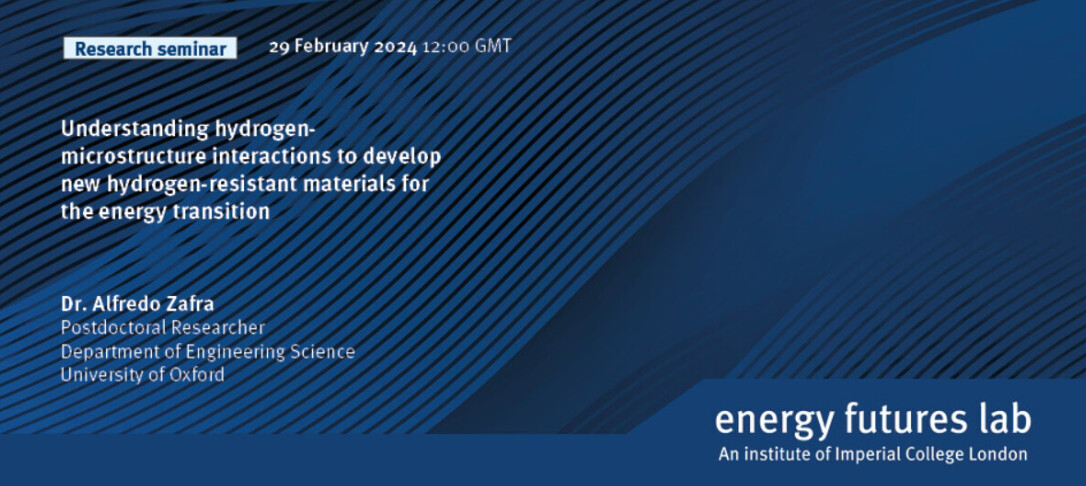
Understanding hydrogen-microstructure interactions to develop new hydrogen-resistant materials for the energy transition
Hydrogen has the potential to become a game-changer in the current energy landscape, helping to reach UK’s 2050 net-zero target. Unfortunately, safety is one of the main barriers preventing a wider uptake of hydrogen as an energy carrier: hydrogen exposure significantly degrades the mechanical properties of structural metals, triggering the catastrophic failure of big components. Therefore, as the first step to developing hydrogen-resistant materials, there is a need to understand the complex interplay between hydrogen and the microstructure of materials. Along this talk, we will explore the complex, but fascinating world, of hydrogen-material interactions, including the effects of hydrogen on plasticity, the influence of hydrogen in the mechanical properties of additively manufactured metals and the cutting-edge techniques used in our lab to characterize hydrogen diffusion in the metal. Finally, we will discuss possible avenues to mitigate hydrogen embrittlement and develop hydrogen-immune alloys.
Biography:
Alfredo Zafra is a senior postdoctoral researcher on hydrogen embrittlement and environment-assisted cracking in the “Hydrogen embrittlement and SCC testing lab”, at the Department of Engineering Science, University of Oxford. Before this, he was a research associate in the Department of Civil and Environmental Engineering at Imperial College London (2021-2023) and a graduate researcher at the University of Oviedo, where he obtained his PhD in Materials Science in 2021. During this time, he has contributed to understanding hydrogen-material interactions in steels and additively manufactured alloys. He is currently dedicated to developing a new generation of hydrogen-resistant metals using advanced manufacturing techniques, including additive manufacturing and nanofabrication.
About Energy Futures Lab
Energy Futures Lab is one of seven Global Institutes at Imperial College London. The institute was established to address global energy challenges by identifying and leading new opportunities to serve industry, government and society at large through high quality research, evidence and advocacy for positive change. The institute aims to promote energy innovation and advance systemic solutions for a sustainable energy future by bringing together the science, engineering and policy expertise at Imperial and fostering collaboration with a wide variety of external partners.